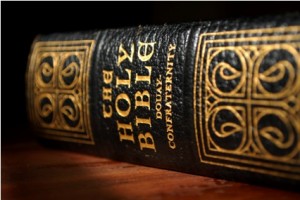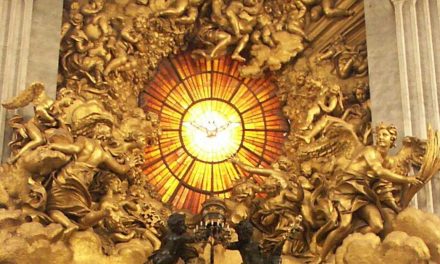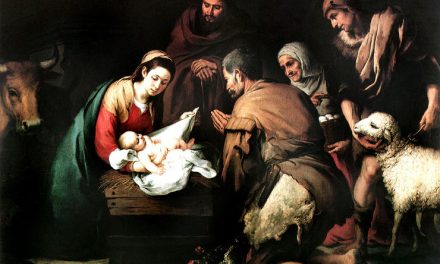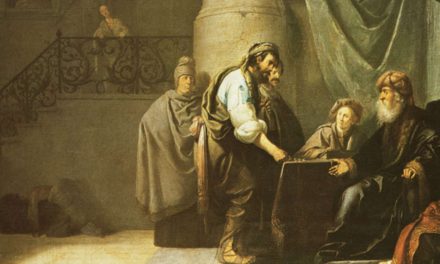Conflict in Galilee — Jesus Faces Opposition to His Kingdom
Editor’s Note — Part 6 of Jesus, Kingdom Builder, a 13-part study of St. Matthew’s Gospel by Dr. Sri. The series will run every other Friday.

Photography © by Andy Coan
By the end of chapter nine in Matthew’s Gospel, we see the people of Israel practically eating out of the palms of Jesus’ hands . . . or so it appears at first glance.
We know that Jesus attracted large crowds from all over Palestine. Many traveled great distances to witness firsthand the exciting movement He was starting in Galilee (cf. Mt. 4:24). Just when His fame was reaching its peak, Jesus took the opportunity to lead large crowds of followers into the Galilean hillside to issue a startling summons which today is often referred to as “the Sermon on the Mount” (Mt. 5-7). In this famous discourse, Jesus set forth His kingdom agenda, and the crowds marveled at His words, recognizing Him as an authoritative teacher from God (cf. Mt. 7:28-29).
Then, Jesus came down from that mountain to perform 10 miracles, which drew even more fanfare. He cleansed lepers, calmed storms, and cured the sick. He healed a crippled man, forgave sins, and restored sight to the blind. However, these mighty actions in Galilee did not reach their climax until Jesus performed His 10th and greatest miracle: expelling a demon from a mute man (cf. Mt. 9:32-34).
The Exorcist
Why might exorcism be considered His greatest miracle so far? In today’s world, we do not often hear about exorcisms, let alone see them performed in the middle of our city streets. Yet, for a first-century Jew, seeing Jesus drive out evil spirits would have been much more than another exciting miracle in the ministry of Jesus.
When Jesus commanded a demon to leave an individual, He was not simply offering spiritual freedom for that particular person. Rather, His exorcisms sent a message that had great meaning for all the people of Israel: Jesus was fighting Israel’s most significant battle. He was building God’s kingdom by driving out those demonic forces, which had torn away at the Israelite nation since the beginning of their history.
By expelling demons, Jesus boldly proclaimed His supreme authority as the Messiah-King. Although His other miraculous healings demonstrated His power over things of this world— such as diseases, physical ailments, and the skies and seas—His exorcisms showed that Jesus had authority even over the spiritual realm. By issuing commands over the demons, Jesus manifested His power over the devil himself—the source of all evils in this world.
Such actions, indeed, stirred up hopes for the Messiah. That’s why some people responded to Jesus’ exorcisms by saying, “Can this be the Son of David?” (Mt. 12:23). Since the Jews expected the Messiah to be a descendent of David who would fight Israel’s enemies, Jesus’ mighty power over the greatest enemy, Satan, could have been interpreted as a messianic action.
So Jesus culminated His incredible tour of miraculous works in Galilee by expelling the demon from the mute man (cf. Mt. 9:32). This final climactic act captivated the crowds and left them completely astonished. They marveled at His ministry, saying “Never was anything like this seen in Israel” (Mt. 9:33). Jesus seems to have had the crowd in the palms of His hands.
However, not everyone was so impressed.
A Severe Accusation
Just when Jesus’ movement seemed to be taking off with immense popularity, the Pharisees conspired to drag Him down and bring an end to the chaos and commotion His miracles had caused. They did not like what they were seeing in Galilee. Jesus claimed to be announcing the long-awaited kingdom that God had promised Israel, but He seemed to be establishing it in all the wrong ways and inviting all the wrong people. Sinners, prostitutes, and tax collectors were drawn into His table fellowship. He touched lepers and the diseased and spent time with other “untouchables.” He even claimed to offer forgiveness of sins on His own authority apart from the established priesthood and the Temple system. “Who does this man think he is?” they would have asked themselves. Surely He could not have been from God if He was leading the people astray in these serious matters and creating further division among the people of Israel.
Yet the Pharisees could not deny Jesus’ miraculous works. Everyone agreed that something supernatural was going on in Jesus’ ministry. His works were so great that they must have been based on some higher spiritual power. The crowds attributed His mighty works to the power of God, but the Pharisees saw things quite differently. Since Jesus seemed to be leading the people away from God’s Temple and the priesthood, and since He seemed to be associating with all the “untouchables,” the Pharisees concluded that Jesus must have been a false prophet. They said that Jesus could control demons not by using the power of God, but by using a much darker force: “He casts out demons by the prince of demons” (Mt. 9:35). They were saying that the only reason Jesus could issue commands over the demons was because He Himself was in league with the prince of demons, Satan.
The Unforgivable Sin
This was the first seed of the Pharisees’ quickly growing hostility against Jesus. After this, they put Him under surveillance, watching every move He made, trying to find any small grounds on which they could criticize Him. They tried to trap Him in His own words. They even began plotting how to destroy Him. The conflict escalated when Jesus expelled a demon from another man in Galilee. Once again, the people were amazed, while the Pharisees leveled a serious charge against Jesus: “It is only by Beelzebul, the prince of demons, that this man casts out demons” (Mt. 12:24).
At this point, the Pharisees had gone one step too far. Jesus shows them the severity of their accusation:
But if it is by the Spirit of God that I cast out demons, then the kingdom of God has come upon you . . . every sin and blasphemy will be forgiven men, but the blasphemy against the Spirit will not be forgiven (Mt. 12:28-32).
In other words, the Pharisees were blaspheming against God’s own Spirit. If Jesus expelled demons by the power of the Holy Spirit, then the Pharisees were identifying that Holy Spirit of Jesus with the power of the devil. That is serious blasphemy. Once the Pharisees cut themselves off from the very source of salvation—Jesus and His Spirit—there was nothing more Jesus could do to work with them. That is why this sin cannot be forgiven. They had closed themselves off from the very Spirit by which Jesus offered forgiveness of sins.
The New Israel
In light of all this, Jesus knew that Israel needed a drastic change in leadership. He looked upon the crowds with great sadness, knowing that their own leaders would steer the people away from Him. When he saw the crowds, he had compassion for them, because they were harassed and helpless, like sheep without a shepherd.
Then he said to his disciples, “The harvest is plentiful, but the laborers are few; pray therefore the Lord of the harvest to send out laborers into his harvest” (Mt. 9:36-38).
At this point in the ministry, Jesus did something He had not done before. After seeing that the people of Israel were like sheep without a shepherd and in desperate need of new leaders to guide them, Jesus turned to His close followers and singled out twelve men to be special leaders in His kingdom. This choosing of the twelve apostles marked a major shift in the ministry of Jesus.
More Than a Dozen
For the Jewish people, the number “12” was much more than a dozen. This sacred number brought to mind the twelve tribes of Israel which descended from the patriarch Jacob’s twelve sons. These twelve tribes were the foundation stones upon which the nation of Israel had been built. Jesus drew upon this traditional symbolism. By going among His numerous followers and pulling twelve men aside to be His close associates, Jesus was sending an important message. Without saying a word, this action of choosing twelve men for special duty would have said, “The New Israel is here!” This action alone would have signaled that all the Jewish hopes for a renewed Israel were coming to fulfillment in Jesus’ movement.
Therefore, when Jesus chose twelve apostles, He symbolically was expressing His intention to rebuild Israel — to reconstitute Israel around Himself with the apostles as the central leaders.
Building the Church
The word “apostle” means one who is sent. An apostle represents the one who sends, and shares in that person’s authority. St. Matthew’s Gospel draws this point to our attention by an intricate display of literary art. Using a literary technique often called “chiasm,” Matthew draws a number of parallels between what Jesus does in 9:35-38 and the mission He gives the apostles in 10:1-7. Jesus preaches the kingdom and heals the sick (9:35), and He sees the people are like sheep without a shepherd (9:36) and in need of laborers being sent out to them (9:38). All this parallels in reverse order how Jesus sends the apostles out (10:5) as shepherds to the lost sheep of Israel (10:5) so that they may preach the Gospel of the kingdom and heal the sick just like Jesus did (10:7).
In a chiasm’s structure, what is most important is what is in the middle of all the parallels. That’s what the narrator is drawing our attention to. At the center of these parallels in Matthew 9-10 is Jesus choosing twelve apostles and giving them authority (10:1-2).
The theme of Jesus’ authority is important for Matthew. In the opening chapter, he demonstrates Jesus’ messianic authority as a true Son of David with His royal lineage traced in the genealogy. Matthew 3 shows Jesus’ authority as the anointed King when the Spirit descends upon Him at the Jordan River. In Matthew 4, Jesus exercises His authority over the devil by defeating him in the three desert temptations. In Matthew 5-7, Jesus establishes His authority in His teachings in the Sermon on the Mount, and in 8-9 He manifests His authority over the storms, the sea, disease, infirmities, and even demonic spirits. Matthew 1-9 is all about establishing Jesus’ messianic authority in His words and deeds.
But in Matthew 10, that very authority of Jesus is now given to the twelve apostles. After the Pharisees accused Jesus of working with Satan (9:34), Jesus summoned the twelve apostles to be the leaders of the renewed Israel He was building.
Apostolic Authority
To emphasize the realism of the apostle’s authority, Jesus went on to say to them, “Whoever receives you, receives me” (Mt. 10:40). Invested with the authority of Jesus Himself, the apostles stand as representatives of Christ. Jesus was very clear: If you wanted to accept Him, you had to accept His apostles. This is why Catholics are called to continue to accept the shepherding of the modern- day apostles, the bishops, who stand as the successors of the original twelve (cf. Catechism, nos. 861-62). By receiving their guidance and teaching, we allow the Good Shepherd Himself to guide our lives through His representatives here on earth. Consider the prayer that priests recite in Masses for feasts of the apostles, as found in Catechism:
You are the eternal Shepherd
who never leaves His flock untended.
Through the apostles
you watch over us and protect us always.
You made them shepherds of the flock. (CCC 857)
Questions for Discussion:
- Why would the Pharisees accuse Jesus of driving out demons by the prince of demons? Why did Jesus consider this accusation as blasphemy against the Holy Spirit?
- In light of Matthew 10, how might you respond to the following comment: “I just want to follow Jesus. I don’t need any bishops shepherding me. Jesus is my Good Shepherd.” (See especially verse 40.)
- Do we really honor the bishops as unique representatives of Jesus or do we sometimes view them simply as leaders of the diocesan institution? What can we do to cultivate greater respect and honor for these successors of the apostles in our daily lives?
Acknowledgement:
Reprinted with permission from the June 1999 issue of Lay Witness magazine. © 1999 Catholics United for the Faith / www.cuf.org/Laywitness/index.asp
Please help us in our mission to assist readers to integrate their Catholic faith, family and work. Share this article with your family and friends via email and social media. We value your comments and encourage you to leave your thoughts below. Thank you! – The Editors













